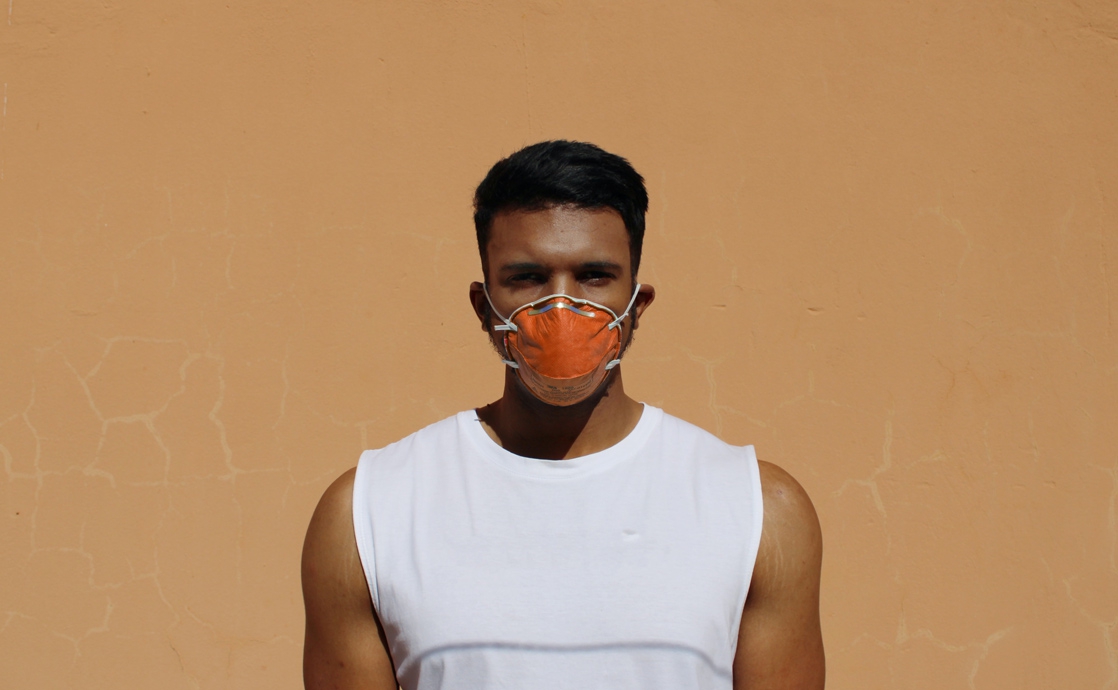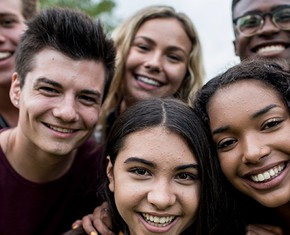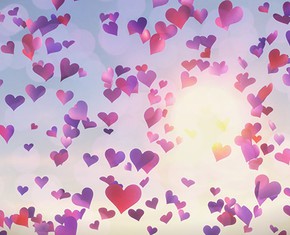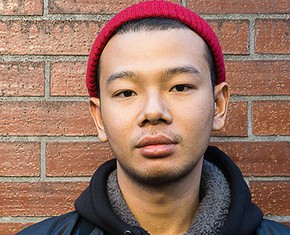The views expressed in our content reflect individual perspectives and do not represent the authoritative views of the Baha'i Faith.
The rural Northern California county where I live has a diverse mix of men—from traditional tough-guy hyper-macho types (flannel, jacked-up diesel pickup, flinty stare, crushing handshake), to the more “evolved” sensitive masculine souls (organic cotton, Prius, compassionate stare, hugs).
You know what I’m talking about, right? I mean, how could you not? Even our politics now hinges on the distinctions between different modes of maleness.
I’ve noticed recently, though, that these wildly divergent masculine roles in our society have a lot to do with whether a guy wears a mask in public or not (maybe we should call it a mask-u-line issue…).
Sorry. Bad pun. You see, right there I gave you a clue about which of these divergent male roles I personally tend to favor, because aren’t real macho men supposed to never say they’re sorry? Here I’ll freely admit that I have been known to apologize, drive an electric car, and hug people, pre-Covid, of course.
But then again, I’m a Baha’i, and Baha’is believe in gender equality. In fact, because of that principle of equality, Baha’is question the prescribed roles and expectations men and women have been assigned by our larger society, and challenge them in their own lives. When Abdu’l-Baha arrived by ship in the United States in 1912, for example, a large group of newspaper reporters interviewed him, and one asked him about the Baha’i attitude towards women’s suffrage, the dominant gender issue of the time. Abdu’l-Baha said:
The world in the past has been ruled by force, and man has dominated over woman by reason of his more forceful and aggressive qualities both of body and mind. But the scales are already shifting—force is losing its weight and mental alertness, intuition, and the spiritual qualities of love and service, in which woman is strong, are gaining ascendancy. Hence the new age will be an age less masculine, and more permeated with the feminine ideals—or, to speak more exactly, will be an age in which the masculine and feminine elements of civilization will be more properly balanced.
So, with this less masculine new age in mind, I’m buying some hardware at the hardware store the other day, a traditionally manly kind of thing to do, lots of pickups in the parking lot, and I’m the only guy wearing a mask in the entire place—what’s up with that?
The females in the store all had masks on. The males: maskless. Barefaced. Obviously saying “Come on coronavirus, give me your best shot!” Don’t get me wrong—some of my best friends drive pickups. I’d like to see them continue to live, along with the people who love them.
My fellow men: what are you thinking?
Then I come home with my hardware and watch the actual news, which shows jammed-together crowds at parties and political rallies and more parties and hanging out in bars and get-togethers at the beach, and I’m forced to conclude that the logic of wearing protective facial coverings during a global pandemic seems to have completely escaped the unmasked men in those non-socially-distanced crowds. Which makes me wonder: are you guys suicidal or just superhuman and somehow immune to all viral infections?
RELATED: Improving Emotional Access to Healing—Especially for Men
Checking into this perplexing gender-based phenomena, I take a look at some epidemiological statistics and learn that men die from the coronavirus at much higher rates than women. Hmmm.
To track down and try to better understand such a strange maskuline aversion, I find a fascinating (and prescient) 2016 paper from the Los Alamos National Laboratory which determined that during pandemics and public health emergencies “women in the general population are about 50% more likely than men to adopt/practice non-pharmaceutical behaviors” such as mask-wearing, hand-washing and avoidance of close-proximity crowds.
You might be tempted, like I was, to assume after reading such a thorough meta-analysis of protective behavior that women are simply smarter than men. (I have overwhelming anecdotal evidence from my own marriage to conclusively prove that contention, but I digress.)
However, we know from the Baha’i teachings, and from a whole universe of scientific research, that intelligence isn’t the issue. In a talk he gave in Boston, Abdu’l-Baha said:
Throughout the kingdoms of living organisms there is sex differentiation in function, but no preference or distinction is made in favor of either male or female. In the animal kingdom individual sex exists, but rights are equal and without distinction. Likewise, in the plane or kingdom of the vegetable sex appears, but equality of function and right is evident. Inasmuch as sex distinction and preference are not observed in these kingdoms of inferior intelligence, is it befitting the superior station of man that he should make such differentiation and estimate, when as a matter of fact there is no difference indicated in the law of creation?
Okay. So men and women, science and the Baha’i teachings have amply demonstrated and proven, have equal intellectual capacities. So why do men object to wearing masks, which science has conclusively shown to reduce not only the risk to you but the risk to me, as well? Baffling, isn’t it?
Maybe not, says more scientific research. One new study from Cambridge University Press concluded that: “… sexist beliefs, a component of masculine norms, are consistently the strongest predictor of coronavirus-related emotions, behaviors, policy attitudes, and ultimately contracting COVID-19.” Yikes, bros. Turns out you can get a fatal disease from your self-image. I am not joking.
Which led me to another insight from yet one more piece of recent scientific research: “Masculine toughness is consistently related to higher negative feelings and lower positive feelings about mask wearing.”
Wow. If, as a self-professed tough guy, you’d rather risk death for yourself and your family and friends than being caught dead in a mask, then you’ve literally already contracted that rampant virus called toxic masculinity. If you feel emasculated, weakened, or compromised by reasonable public health measures like covering your face, you might want to look inward, examine your role as a man, and ask yourself why.
So gentlemen and not-so-gentle men, if you’re averse or threatened or somehow just resistant to common-sense protections from fatal diseases like wearing a mask or washing your hands or staying home or accepting government-imposed restrictions on your “freedom,” please think again. Your toxic masculinity could kill you. Seriously, dude.
















Comments
Sign in or create an account
Continue with Googleor